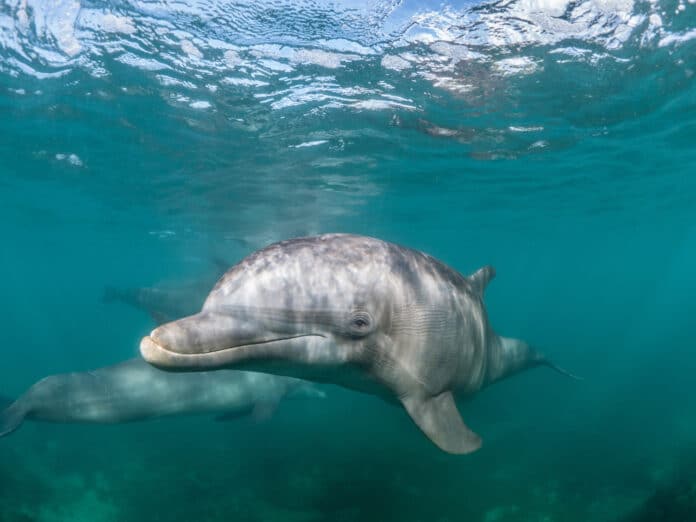Whales have been titled climate savers in the media, with their recovery welcomed as a potential carbon solution. However, only a few studies have been performed to date providing data or model outputs to support the hypothesis.
A new study led by Griffith University and a team of global researchers has found the amount of potential carbon captured by whales is too little to alter the course of climate change meaningfully.
Professor Brendan Mackey and Dr. Jasper De Bie, along with marine biologist Dr. Olaf Meynecke, analyzed the main mechanisms by which baleen whales (such as humpback whales) remove atmospheric carbon at both the regional and global levels.
The team discovered that the quantity that the whales may potentially sequester was too small to impact the course of climate change substantially.
Dr. Meynecke said, “Our study supports that whales are important for the marine ecosystem, but their contribution to the global carbon flux is too small to reduce atmospheric carbon effectively.”
“While our research group would very much like to highlight the opposite to benefit the conservation of whales and perhaps one day use carbon credits to support research, the debate is misguiding and creates false hope.”
“This is in contrast to media perpetuating whales as climate engineers.”
“Creating false hope in the ability of charismatic species to be climate engineers may act to delay further the urgent behavioral change needed to avert catastrophic climate change impacts, which can, in turn, have indirect consequences for the recovery of whale populations.”
“And while whales were vital to the healthy functioning of marine ecosystems, overstating their ability to prevent or counterbalance human-induced changes in global carbon budgets may unintentionally redirect attention from well-established greenhouse gas reduction methods.”
“Previous estimations neglect the scale in which carbon sequestration occurred temporally and spatially. Some of the pathways suggested for carbon sequestration, such as whale falls (when whales die and sink to the ocean floor but retain carbon for decades), also underestimate the breathing of whales.”
“We think it is important to acknowledge that there are other values of whales that are more relevant to drive their conservation than carbon capture.”
“Large-scale protection of marine environments, including the habitats of whales, will build resilience and assist with natural carbon capture at a global scale.”
Journal Reference:
- Jan-Olaf Meynecke, Saumik Samanta et al. Do whales increase the oceanic removal of atmospheric carbon? Frontiers in Marine Science. DOI: 10.3389/fmars.2023.1117409
